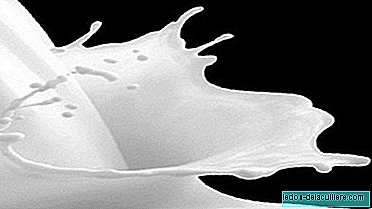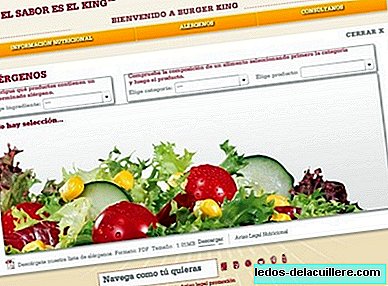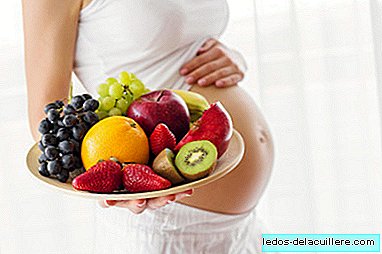Pregnancy is a wonderful and fascinating stage, in which our body changes at great speed while creating a new life. But for many women, these changes are linked to the appearance of certain discomforts that tend to be accentuated as gestation progresses.
Food can be a perfect ally in pregnancy to alleviate some of these discomforts, as long as a balanced and healthy diet is taken. We tell you what Food can help you feel better every time.
Low iron: more red meat and fish

Anemia is a disease that is characterized by a decrease in the amount of red blood cells, which decreases the ability to transport oxygen or iron to the rest of the body. Its symptoms include dizziness, fatigue, paleness, lightheadedness and trouble breathing.
During pregnancy we need higher doses of iron, necessary for the production of hemoglobin in the red cells of the maternal and fetal blood. For this reason, women often suffer from anemia at some time during pregnancy, although most of them do not find it harmful.
It is important to keep anemia at bay during pregnancy, and this will be achieved by carrying out a balanced diet that helps us cover that possible iron deficiency, which is one of the main causes of anemia at this stage of the life of the woman.
The red meat, fish, shellfish, legumes and green leafy vegetables they provide significant amounts of iron, and if we combine these foods with other foods rich in vitamin C, we will be helping our body to better absorb this mineral.
Hemorrhoids: increases fiber intake

Up to 40% of pregnant women suffer from hemorrhoids at some stage of pregnancy, especially in the third trimester.
Hemorrhoids are a circulatory disorder caused by dilation of the veins, which added to constipation, another of the typical discomforts of pregnancy, produces an increase in pressure in the rectal vessels, causing itching and sometimes quite intense pain.
Since the effort to defecate, constipation and the fact of spending a lot of time in the toilet increase the risk of hemorrhoids, we must ensure that the stool is soft. The trick is to maintain good hydration, drink plenty of water and consume a diet rich in fiber, increasing the consumption of whole grains, legumes, fruit and vegetables.
Nausea: more carbohydrates

Nausea is one of the most typical discomforts during pregnancy, especially in the first trimester. They are usually accompanied by intolerance and aversion to certain foods, as well as repulsion to some odors that increase the feeling of discomfort.
It is recommended make small and frequent meals throughout the day, prefer carbohydrates (vegetables, vegetables, whole grains, legumes ...) and avoid copious foods, overly fatty foods, fried foods, spicy foods, coffee and tea.
Heartburn: consume foods with alkaline ph

Heartburn, heartburn or heartburn is a digestive discomfort that is explained by various causes, from the increase in the size of the uterus (which leaves less space to the stomach) to hormonal factors that produce gastric abnormalities.
Many of the recommendations to relieve nausea also help control heartburn. It agrees avoid very fatty, fried, spicy, spicy and very sugary foods. It is also not convenient to drink citrus fruits and drinks such as coffee, soda with caffeine or theine or with bubbles.
To reduce heartburn and heartburn it is necessary to consume alkaline ph foods, such as fruits and vegetables (especially cooked to promote digestion), cereals and derivatives, and very well cooked legumes.
It can also help to take a tablespoon of olive oil, since the oil acts in our stomach as a protective film, avoiding the effect of gastric acids and neutralizing discomfort and burning.
Leg and foot cramps: increased intake of potassium-rich foods

Muscle cramps occur when a muscle is tensioned or contracted involuntarily, and does not relax, causing intense pain. The cramps can affect all the musucle or only a part, and although they can occur in many places, the most common during pregnancy are in feet and legs, and also in English.
Foot and leg cramps during pregnancy are very annoying, and often occur when a muscle is overloaded or injured. This can happen if you exercise when the muscle is not hot, if the mother is especially tired or tired, or when the body has low levels of minerals such as potassium or calcium.
Calcium can be found mainly in dairy products, but also in other foods such as green leafy vegetables, whole grains and small fish that are taken with bones.
As for potassium, foods such as Banana, potato, artichoke or avocados, among many others, are excellent natural sources of this important mineral.
Cystitis: cranberries, the great allies

Urinary tract infection is a frequent nuisance during pregnancy, as between 4 and 10% of pregnant women suffer from it.
There are different types of urinary infections, as the urinary tract covers from the kidneys to the urethra, and infection can occur anywhere in them. The most typical is the cystitis or bladder infection, which has pain, discomfort in the lower abdomen and burning when urinating.
Red cranberries are, according to the Spanish Society of Gynecology and Obstetrics (SEGO), a great ally to combat recurrent urine infections, as they enhance the body's diuretic capacity.
Unfortunately, we are not exempt from suffering any of these discomforts during pregnancy, but by including in our diet this type of "allied food", we can combat the suitcase naturally and healthily.Photos | iStock, Pixabay
In Vitónica | The keys to fight acid reflux: this way you can avoid acidity, Olive oil, a remedy to end stomach acid, 10 foods with more potassium than banana












